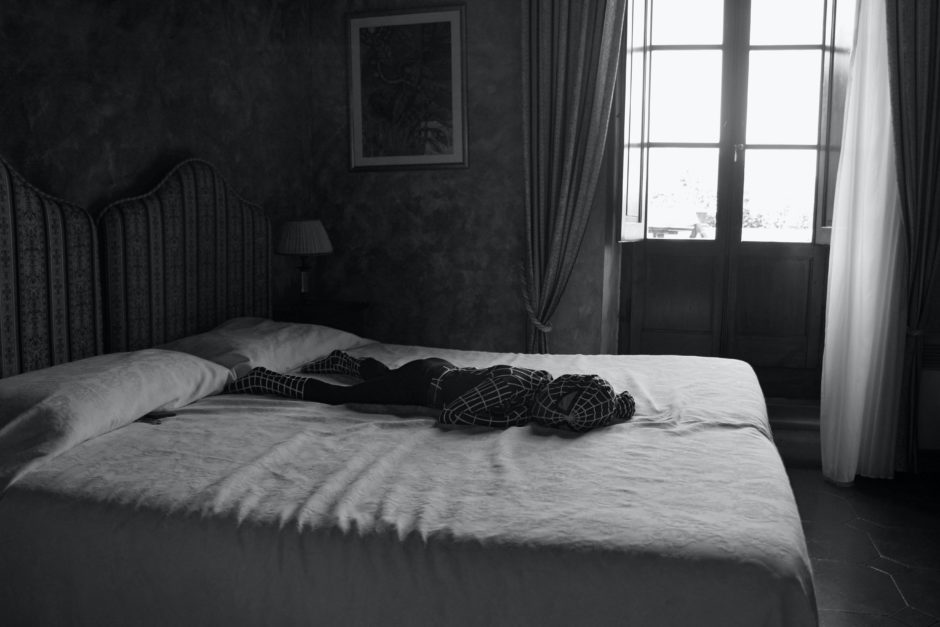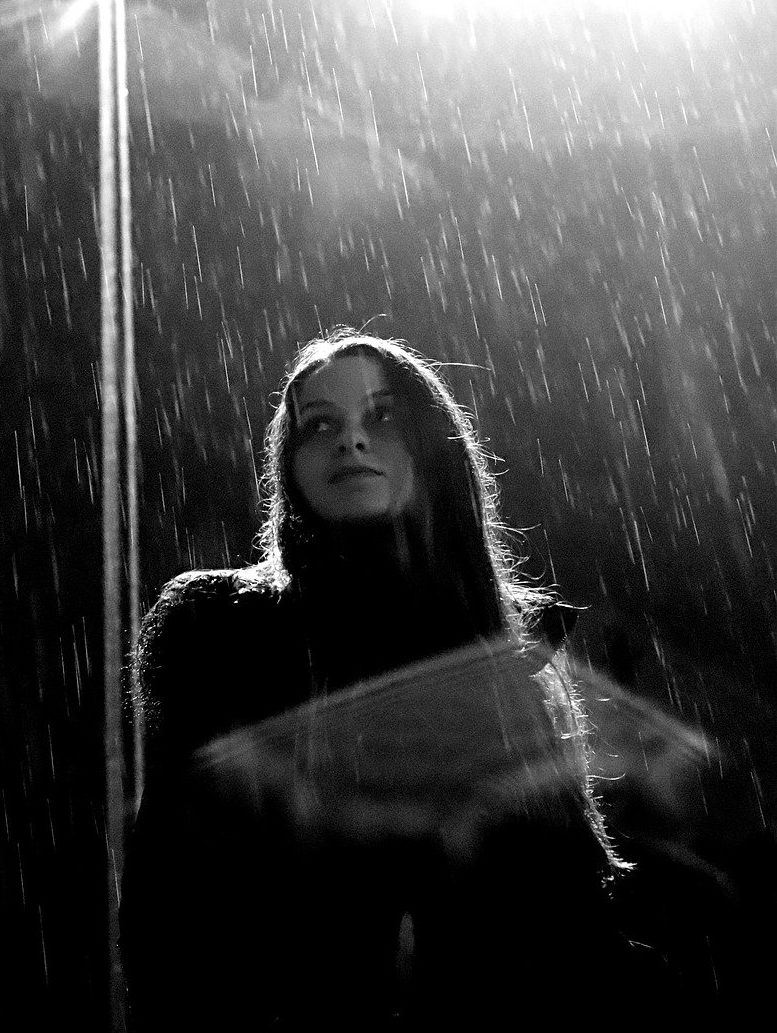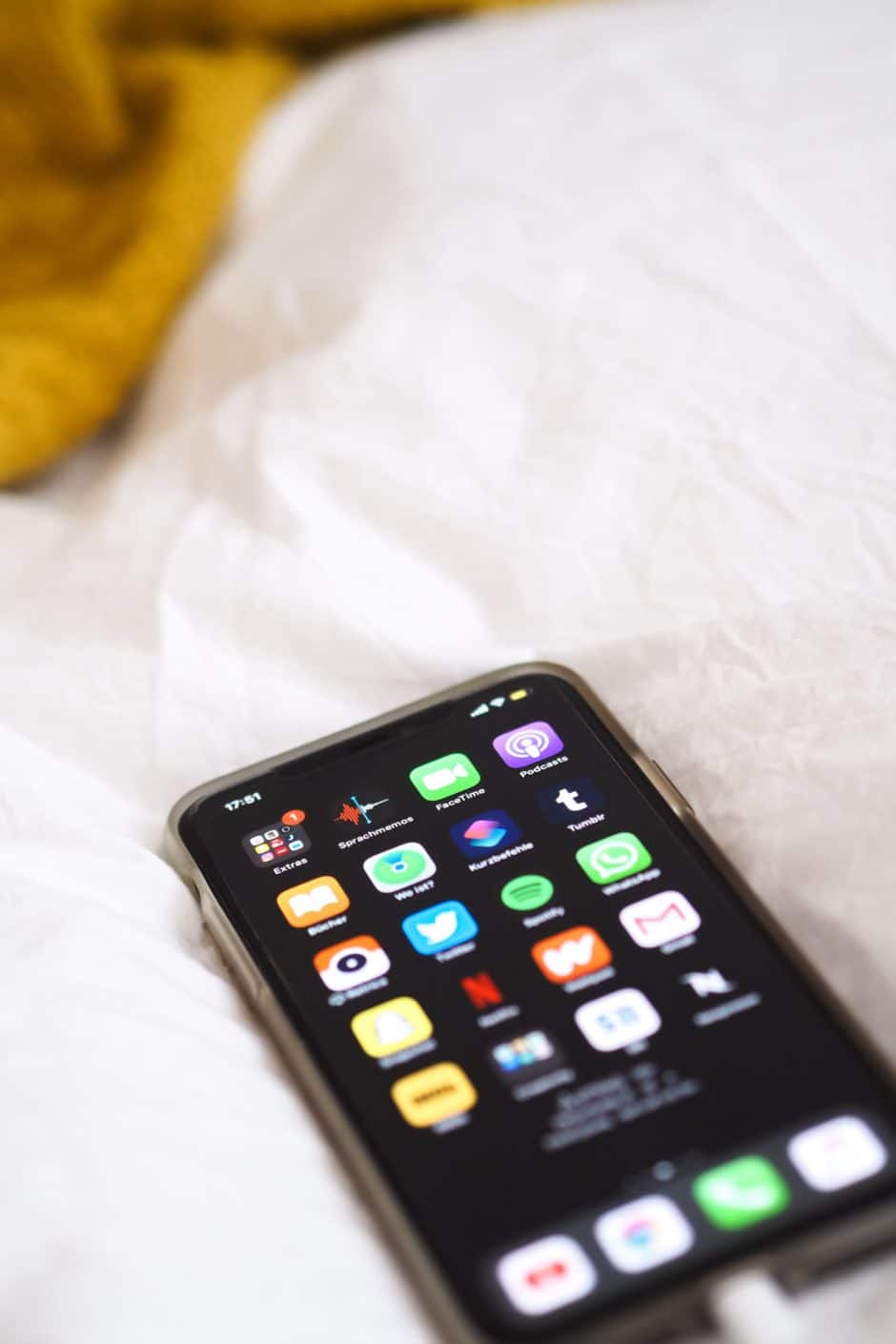By Byron Spooner
“The holidays are hard on everybody,” Mother says, stubbing out her half-smoked Kent in a chocolate-smeared dessert plate, as if that might head the conversation off at the pass. If Dad were here he’d be giving Mother his usual hyperbolic ration of shit about smoking, but he’s long gone so she can do pretty much anything she Goddamn well pleases. Plus, she only smokes about three or four a day. Five, tops. If I could get away with that I’d still be smoking.
Arranged around the table in roughly the same configuration as at that lunatic Christmas dinner forty-odd years before, the three of us are the only ones left and none of us remembers exactly. Not that it matters.
“And really, what was Dad thinking?” my brother Davey says.
Which is exactly the question Mother doesn’t want me or Davey asking, the start of a discussion she’s endured many times; another rehash of that evening we still tell stories about—obsessively, she would say—and embellish and laugh about, at our increasingly infrequent gatherings. She hopes she can still steer clear of it.
“Who knows?” I say.
“Who cares?” Mother says too late.
At the head of the table, the tinsel-shimmering tree in the bay window behind him, looming over us, was six-and-a-half feet of Dad. He was halfway into his third martini. At the other end, Mother, tiny and starting to put on weight, had a VO on the rocks within easy reach; who knew how many she’d had in the kitchen. The entire Northeast region, as the weatherman called it, may have been glazed stiff from three days of continual freezing rain, but inside the heat was on full, the food was steaming. The perfect way to bring the day to a fitting finish.
Granted, the morning’s gift exchange hadn’t gone as well as it could have. Davey and I had each gotten at least one thing we wanted and had managed to keep the whining to a minimum. Davey, at seven, had been, for weeks, nearly beside himself with anticipation; I played it cool, it was my tenth Christmas and I acted the unimpressed veteran. Dad’s asshole buddy Garnett and his glamorous wife Marge were with us and, as always, exchanged token gifts with Mother and Dad. But they’d been staying with us ‘for a couple of weeks’ since around April. Another thing for Mother to be chronically pissed off about.
Things got off on the wrong foot early when Dad gave Mother a flat white box with red wrapping paper and a gold ribbon. She unwrapped it carefully, putting the paper and ribbon aside intact, and slid the top off the box. She peeled away the tissue paper and slowly, with a puzzled smile on her face, held it up for view in front of us before she realized what exactly it was; the flimsiest, shortest, sheerest negligee legally offered for purchase within the borders of the contiguous United States. There were straps going every which way with seemingly no imaginable purpose, it looked as if the whole rig couldn’t modestly cover one of the cats. What there was of it was the thinnest black fabric with blacker vertical ribbing and a feathery—or maybe furry—scarlet trim. The second she realized what it was, her smile disintegrated and she flushed red as the trim, dropped it back into the box while trying simultaneously to refold the tissue paper around it, jam the top back on the box—if she could have rewrapped it she would have—and drop it on the floor next to her. She couldn’t look at anyone in the room, instead scowling at the box as though it were a Great Dane soiling her clean floor.
“Go ahead, try in on!” Dad said to her, leering slightly and elbowing Garnett.
“What was that?” Davey asked, “What’s it for?”
What was Dad thinking? Did he mistake the flush of embarrassment and anger on her cheeks for some rosy dawn of eroticism, a pinkening of the cadaver of desire afresh? Was he so out of it that he misinterpreted the obvious signals?
Mother was short-tempered the rest of the day and when I asked Dad why, he said, “Christ, who knows? It’s always something with her.”
Dad wore his suit to dinner nearly every day and there was no reason Christmas dinner should be any different. Expecting guests, especially wealthy guests like Aunt Doobie and Uncle Flicker, brought out the blade in him. Flicker had inherited money—“a shitpot full,” according to Dad— from his family. Money made from the manufacture and sale of a nationally-known constipation remedy. Which was what made “shitpot full” even funnier, again according to Dad.
When Flicker wasn’t around Dad referred to him as the “The Laxative King,” but on the rare occasions Flicker was around he sucked up to him unsubtly, calling him “My favorite brother-in-law” and stuff like that. It was Dad’s conviction, his only unshakeable tenet of belief, that the one and only reason Flicker existed on the earth, the reason he’d been born of woman and suckled and nurtured and expensively educated and raised to maturity and unleashed on an unsuspecting and undeserving world in all his slim, urbane, cigarette-holder-sporting, Thunderbird-driving, condescendingly-nasal-voiced glory, was to make Dad look bad.
Dad’s attitude was: You never knew when a rich person might be suddenly convulsed by the irresistible urge to begin handing out random cash. Stranger things had happened after all and there was no reason not to be close by should such a compulsion come over Flicker.
But Doobie and Flicker, never the most reliable of jetsetters, still had not shown. They were already a couple of hours late when Mother and Dad powwowed in the kitchen, hissing and whispering. Mother wanted to go ahead and serve; dinner was going to be too late for us kids if we waited much longer. Dad wanted to hold off for another hour or so. Mother’s winning point, the one that changed Dad’s mind, was ‘If we stall around any longer the roast’ll be ruined.” Overdone and tough. Hearing this, Dad, who liked his beef cooked ‘so it moos’ immediately relented and started herding everyone in sight to the table. He always said sophisticated people ate their meat rare.
With or without Doobie and Flicker, Dad had been looking forward to the Christmas roast since sometime around the Fourth of July. He loathed Christmas and all things associated with it but wasn’t about to let that spoil a good meal. Just because he’d been collecting Unemployment for the better part of nine months didn’t mean we couldn’t splurge a little for the holidays. The roast alone had set him back enough to feed the entire family the usual slop for a week. We’d be eating nothing but macaroni and cheese and store-brand canned crap into mid-January at least, but it would be worth it. Mashed potatoes, peas with pearl onions, Parker House rolls, real butter, Jell-O salad. Gravy. Garnett had said he’d kick a share into the pot but came up short, having been unemployed even longer than Dad.
Dad seemed to hover over the roast, a knife in one hand, a fork in the other, letting the anticipation build.
He peered into the gravy boat, the good one our grandmother had given us, silver and shaped vaguely along the lines of Aladdin’s Magic Lamp, from over his glasses. If you asked him—not that anybody ever did—there was never enough gravy; the woman never made enough. If it had been up to him he would never, ever, have to ladle out the gravy in carefully measured, niggardly portions as if we lived in the poorhouse or something. If it had been up to him, he’d have poured it. He’d have poured it on his meat, his potatoes, his vegetables, his salad, his goddamned ice cream, if he wanted to. He’d float the whole flipping meal in it.
And he always, at this point in the proceedings, asked the same question, “The gravy situation is MIK, I presume? More In Kitchen?”
“Just what’s there,” Mother said, her voice tense. To her, the most galling part of the whole performance was he always, no matter how many times he trotted out the same tired line, felt the need to translate the acronym for her. Did he think she hadn’t heard ‘More In Kitchen’ the last two hundred times he‘d said it? Did he not realize he was prodding a hornets’ nest with this MIK nonsense?
He shared a downcast look with us kids, and then with Garnett and Marge, as if to say, ‘See how much I have to suffer?’
He paused for another solemn moment.
“I must say that Christmas dinner is always extra special when I’m serving all these wonderful people. All these people who are so close to me and whom I love so dearly.”
Was he sincere or just bullshitting us? Probably a little of both if my ear could be trusted. It was hard to know.
“I know we’re all broke this year…”
“Just like last year…” Mother muttered.
“…but there are still some things…”
“…and the year before that…” she continued.
“…that are more important…”
He went on from there, blessing each of us several times including the roast and the gravy and the pearl onions, with the gravy ladle.
“A-men, a-men,” Marge said.
“God bless us one and all,” Garnett said. He was defrocked minister, so he still knew how to make stuff like that sound sincere and insincere at the same time..
“The food is getting cold,” Mother said.
Carefully and with all the high-seriousness befitting the occasion, Dad carved the roast and doled out the slices, a few at a time. His disappointment was obvious as each successive slice peeled away; the meat was gray, without even a trace of pink, through and through. The rest of us, hungry and not nearly as worldly as Dad, fell on the food like starved peccaries. All the while we kept one keen eye on the remaining food and plotted ways to get a little more than the others when the time came for seconds. Everyone talked at once: the gifts, the rain outside, the fire in the fireplace, Santa, Christmases past, Dickens, the Grinch, a week off from school.
No one mentioned Kennedy, who’d been shot and killed just over a month before.
“We’re not going to spoil our Christmas just because that sonofabitch is dead,” Dad had said, earlier in the day, making clear his position. As if there had ever been any doubt.
Garnett pulled a palmed marshmallow out of Davey’s ear. He kept a bag of them hidden in his coat pocket. Davey giggled.
“I love this time of year; the Christmas trees, the decorations, the store windows,” he said.
“Yes, it is lovely isn’t it? Why don’t we drive into the city tomorrow and see the decorations on the big stores one more time before they take them all down,” Marge suggested.
“Good idea,” Mother said, “We all get tired of being cooped up in the house after a couple of days. I know I do.” A glance at Dad.
Dad rolled his eyes ceilingward. Not his idea of a fun way to fill an afternoon.
“Did you see the guy owns the hardware store downtown?” Dad said, “He stuck a sign in his window says, ‘Give Your Husband a New Screw for Christmas!’ You might want to take the kids past that way. Good for a couple of laughs.” It was always hard to pinpoint who his intended audience was for this kind of thing. The rest of us could practically hear Mother simmering at the other end of the table. He was oblivious. At least it seemed so.
Garnett laughed, as would be expected, but Marge hid her mouth behind her napkin.
“Why would you say something like that at this table, with the children here, everyone in such a good mood?” she said.
“It’s a joke, m’dear, a joke. Best just to let it pass.” Garnett said, pulling another marshmallow from Davey’s ear. I monitored this pretty closely. Usually after another highball or two he’d switch from marshmallows to quarters. You wanted to be around for that.
“I hear Doobie and Flicker are headed for Aruba after the holidays,” Dad said.
“Yes, they are,” Mother said, perking up, momentarily encouraged that her husband had been paying attention to something other than his own needs for a change.
“Maybe they decided to head down there early,” Dad said.
“I understand it’s lovely this time of year,” Marge said.
“Me, too,” Garnett said, “No freezing rain, at least.”
“Art Plouts had a buddy went to Aruba,” Dad said, “He told me it isn’t all it’s cracked up to be.”
“Art Plouts?” Mother said.
“I remember ole Art,” Garnett said, “Wasn’t he…”
“Art Plouts?” Mother said again, incredulous, wanting none of Art Plouts, a gin-soaked housepainter Dad had met in a barroom in Memphis who’d mooched room, board and booze off us for several months in exchange for a couple of shaky coats of exterior white.
Mother said, “If Aruba’s such a hellhole how come people are practically killing themselves to get there?”
“Just ‘cause you’re rich, doesn’t make you smart,” Dad said, directing this at me and Davey as if it were a valuable piece of advice.
Mother said, “I guess by that measure you’re about the smartest man in town.”
He gave her a look of wounded incomprehension.
“You should be a regular genius,” she said.
Garnett reached over and pulled a quarter out of my ear. I must have miscalculated his rate of consumption.
“You and Art and all your other deadbeat friends? You idiots think it’s smart to not work? You and your friends are too fucking smart to hold a steady job?”
The table went silent.
Garnett issued a barely audible burp.
Dad swore like a drill sergeant, we heard obscenity and profanity daily—hell, hourly—from him. It had only been only a year or two since I’d figured out ‘motherfucker’ wasn’t another word for ‘lawnmower.’ Nouns, verbs, adjectives, adverbs, exclamations, he swung the words the way Dizzy Gillespie swung high notes, the way Jackie Gleason delivered a punch line, with precision and artistry, yes, but also for the sake of pure entertainment. But that word—Fuck—coming from Mother, and not just the word but in that tone, in front of her children and Marge and Garnett, and on Christmas, was nothing but unalloyed rage. It sent a charge of fear through the room.
“See here,” Marge said.
“Shut up,” Mother said, “You’ve been on my last nerve all day with your holier-than-thou, high-and-mighty attitude, so right now, just for now, why don’t you shut up?”
After a minute and with deliberate and exaggerated patience Dad said, “If you’re referring to the alleged differences between me and the sainted Flicker, I would like to point out, A, he’s never had to lift finger one in his entire pointless goddamned existence. B, he inherited everything…”
“It wasn’t Flicker who gave you the idea for that…that…filthy…thing you tried to give me this morning. That idea had to come from Art or some other dirty-minded friend of yours.”
“I came up with that on my own…” he said, leering again at the memory.
“I had nothing to do with it,” Garnett said.
“And in front of these poor children…?”
“…and, getting back to my original point, don’t forget, C, everyone…” he said, going back to his list, his forefinger pointing to the ceiling, massively oblivious to what was coming.
“…and on Christmas…?” she said, wanting nothing more to do with his alphabet.
“… on the entire face of the planet…”
“And…in…front…of…all…these…people?”
As she said this last, she jumped out of her chair, gripping the edge of the table, bringing her end up with her as she rose.
“…kisses his rich ass…”
Like all tragedies, this one happened in slow motion.
We all watched breathless, frozen in place, useless, as Mother tilted her end of the table upward and sent an avalanche into Dad’s lap; the tablecloth with our dinner, dishes, silverware, serving platters, water glasses, the cocktails, the roast, the Jell-O salad, the peas with pearl onions, the mashed potatoes, the gravy—the gravy! Dad tried to save the roast, grabbing it as it sailed by. At the same time, he tried to stand, to get out of the way of the rest of our dinner, but in his rush to throw himself clear his legs got tangled in his chair legs; his left shoe clomped onto the silver-plated gravy boat, half-flattening it. He slipped in the spreading slick of gravy and fell backwards, kicking out, shooting the gravy boat, which no longer resembled Aladdin’s Magic Lamp or anything recognizable, at a terrifying speed and sending it smack against the opposite wall. It ricocheted back at him, caroming off the ceiling on its way. There was still enough gravy in the ruined thing to spatter Dad’s face and clothes when it struck him square in the forehead and rattled to the floor, came to rest in nearly the exact spot it had taken off from. More stunned than wounded, he fell backwards into the tree, bringing it down with a great, sickening crash. The plugs on the Depression-era light strings sputtered and smoked under the strain and finally gave up the ghost, flickering once, twice, and dying. Dad sprawled on top of the ruined tree, the roast resting on his chest like some wet trophy.
“Shit,” Dad said.
An extended stunned silence ensued punctuated only by the miniature crash—Ding!—of a last glass ornament dropping to the floor. We all sat in our chairs feeling suddenly exposed, absent the table, napkins in our laps, knives and forks still in our hands
“God bless us one and all,” Garnett said and Dad, from where he lay moaning, his suit gravy-spattered and covered with pine needles, could only laugh. He always thought Garnett was a fucking riot.
“A few years ago,” I say, “It came to me that the world didn’t need me to point out all the already obvious hypocrisies of the season. Most people work out ways to live with them, reconcile with them, so they can still enjoy the season. And I’m not helping anything by acting like Dad; trying to convert everyone into an atheist or a Scrooge. So he hated Christmas? So what? What gave him license to go around spoiling everyone else’s holiday?”
“So if you don’t have anything nice to say I just dummy up? ” Davey says, “Doesn’t sound like you.”
“It’s the new me,” I say.
“How’s that working out for you?” Davey asked.
“So-so, I’d have to say, Dr. Phil,” I say, I’ve been the other way for so long it’s just habit to be that way.”
“Forty Christmases under our belts since that one,” Davey says, “I guess we’re the last of them.”
I ask Mother, “What happened to Garnett?”
“After your father died, I lost touch with Marge and Garnett,” Mother says, “I assume they’re gone. It was no state secret I never really cared much for them.”
She always said that, “No state secret.” Some things never change. Actually, most things never change, if you think about it.
“No, it certainly wasn’t,” Davey says, laughing at her understatement.
Mother says, “The last we heard they’d gone up to Providence to live with Marge’s sister, ‘looking for work’—probably sponging.”
“Doobie and Flicker never did show up,” Davey says.
“The peripatetic Doobie and Flicker,” I say, jumping on the rare chance to insert ‘peripatetic’ into a conversation.
“Wow, nice word,” Davey says. In our family, sarcasm is the mother tongue.
“Yeah, and I remember how pissed off you were,” I say to Mother. Davey just laughs. Whatever happened to her sister Doobie and Doobie’s husband Flicker that night is lost in the mists—the freezing rain—of history; never satisfactorily explained, never resolved. Nobody ever asked, nobody ever explained. Like everything else, we all just acted as if nothing had happened and trudged on. It was a tradition that had been passed down through generations. They died a few years later off the coast of Mexico, marlin fishing. Apparently everyone on board was loaded—’knee-walking drunk’ was how Flicker’s ancient mother put it—when they capsized.
“They always lived like the rules didn’t apply to them. They were terribly reckless.” she says, “And, just to set the record straight, I wasn’t ’pissed off’ so much as disappointed.”
Davey laughs again, “‘Disappointed?’ Hell, you didn’t speak to them for a couple of years after that.” He is always brutally honest with her, the one who calls her on her bullshit, never giving her an inch, ever since he was little.
“Yes, I never got the chance to reconcile with her,” she says, “And I would’ve too.”
Davey and I exchange glances that say, ‘Yeah, right.’
“It was all so long ago,” she says, sighing “I don’t understand why we always have to come back to it. Every Christmas it’s the same Goddammed thing.” She lights her last Kent of the evening and shakes the match out.
Davey says, “You’re right, ‘the holidays are hard on everybody.’”
Byron Spooner has recently retired after twenty-one years as the Literary Director of the Friends of the San Francisco Public Library where he produced literary events including a weekly poetry series with San Francisco Poet Laureate Emeritus Jack Hirschman. He founded and edited of The Readers Review, the Friends’ literary blog, where he wrote about books, music, film and bookselling. With his wife, writer Judith Ayn Bernhard, Byron co-edited Arcana: A Festschrift for Jack Hirschman (Andover Street Archives Press, 2014). His writing has been published in the San Francisco Examiner, the Anderson Valley Advertiser, Autobiography and Isis. He has written introductions to several anthologies published by FSFPL. His short story, A Book for Christmas was published by Red Berry Editions in 2011. Byron has served on the San Francisco Poet Laureate Nominating Committee and the One City, One Book Selection Committee of the SFPL, on the Board of Litquake, and the Advisory Board of the Beat Museum.
Anti-racist resources, because silence is not an option
~~~~~~~~~~~~~~~~~~~~~~~~~~~












